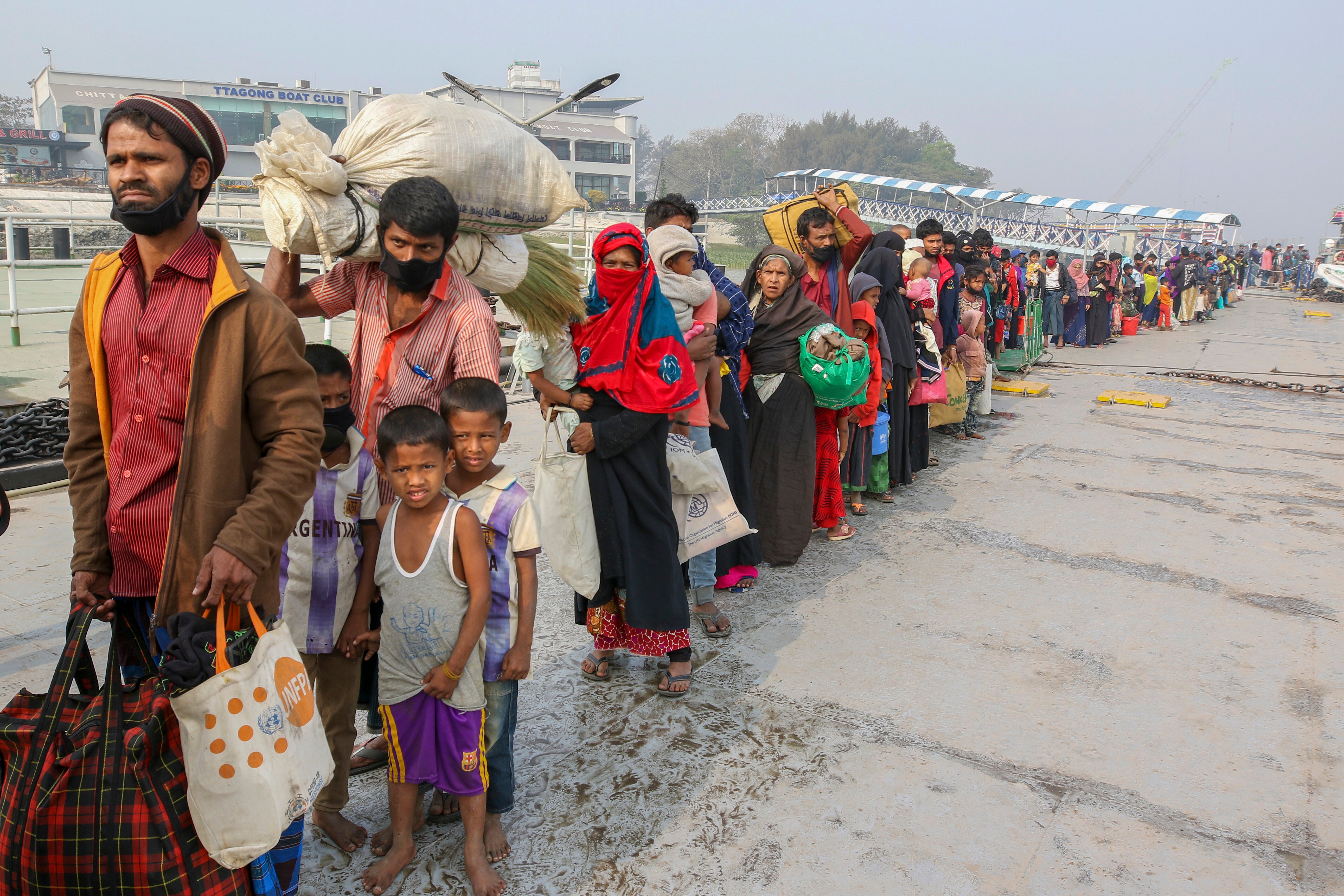Bangladesh vaccinating Rohingya refugees amid virus surge
Bangladesh’s government and aid agencies started vaccinating Rohingya refugees as a virus surge raises health risks in the camps

Your support helps us to tell the story
From reproductive rights to climate change to Big Tech, The Independent is on the ground when the story is developing. Whether it's investigating the financials of Elon Musk's pro-Trump PAC or producing our latest documentary, 'The A Word', which shines a light on the American women fighting for reproductive rights, we know how important it is to parse out the facts from the messaging.
At such a critical moment in US history, we need reporters on the ground. Your donation allows us to keep sending journalists to speak to both sides of the story.
The Independent is trusted by Americans across the entire political spectrum. And unlike many other quality news outlets, we choose not to lock Americans out of our reporting and analysis with paywalls. We believe quality journalism should be available to everyone, paid for by those who can afford it.
Your support makes all the difference.Bangladesh's government and aid agencies started vaccinating Rohingya refugees Tuesday as a virus surge raises health risks in the sprawling, cramped camps where more than 1 million people who fled Myanmar are sheltering.
The highly transmissible delta variant is driving an infection surge across Bangladesh, with around 20,000 infections and 200 deaths recorded so far in Cox’s Bazar district, the southern region bordering Myanmar where the 34 refugee camps are located.
The International Federation of Red Cross and Red Crescent Societies said a national positivity rate of around 30% indicates the spread of COVID-19 is much higher, especially with cramped conditions and the risks faced by many people living in the refugee camps.
The government’s Civil Surgeon’s office in Cox’s Bazar and aid agencies began the vaccination campaign across 34 camps alongside Bangladesh's national vaccination effort.
About 500 Bangladesh Red Crescent staff and volunteers joined the health workers for the campaign in collaboration with the U.N. refugee agency, according to a statement from the international body.
Rohingya community leaders, front-line health care volunteers in the camps, and Rohingya older than 55 are in the first group to be vaccinated. Over 65,000 of the nearly 900,000 refugees will be vaccinated in the first cohort, the U.N. High Commissioner for Refugees said in an email to The Associated Press.
Bangladesh has reported more than 1.3 million infections, including 22,897 deaths from COVID-19 since the pandemic began.
More than 700,000 Rohingya fled Buddhist-majority Myanmar in 2017 as a harsh military crackdown was waged against the ethnic group following an attack by insurgents. Other Rohingya have lived in refugee camps in Bangladesh following earlier waves of persecution.
The 2017 crackdown included rapes, killings and the torching of thousands of homes, and was termed ethnic cleansing by global rights groups and the United Nations While Bangladesh and Myanmar have sought to arrange repatriations, the Rohingya are too fearful to return home.